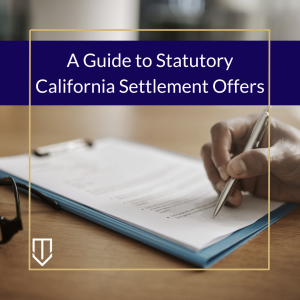 California Code of Civil Procedure section 998 encourages parties involved in legal disputes to settle prior to trial. According to this law, either party can present a written settlement offer to the other party up to ten days before the trial begins. (CCP § 998(b).)
California Code of Civil Procedure section 998 encourages parties involved in legal disputes to settle prior to trial. According to this law, either party can present a written settlement offer to the other party up to ten days before the trial begins. (CCP § 998(b).)
If the plaintiff declines a timely offer from the defendant and subsequently receives a judgment at trial that isn’t more favorable than the defendant’s offer, the plaintiff must “pay the defendant’s costs from the time of the offer.” (CCP § 998(c)(1).) Moreover, in many civil cases, the court may also require the plaintiff to pay a reasonable amount of the defendant’s expert witness expenses incurred after the offer was presented.
Likewise, if the defendant rejects the plaintiff’s timely offer and later gets a judgment at trial that isn’t more advantageous than what the plaintiff offered, the court has the authority to require the defendant to pay the plaintiff a reasonable portion of their costs related to expert witnesses incurred after the offer was made. (CCP § 998(d).)
 California Partition Law Blog
California Partition Law Blog


 California Code of Civil Procedure section 998 incentivizes parties in litigation to settle their disputes before trial. The statute provides that up to ten days before trial, either party may submit a written offer to the other to settle the case under specified terms. (CCP § 998(b).)
California Code of Civil Procedure section 998 incentivizes parties in litigation to settle their disputes before trial. The statute provides that up to ten days before trial, either party may submit a written offer to the other to settle the case under specified terms. (CCP § 998(b).)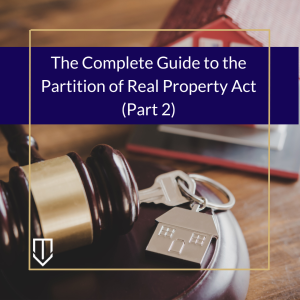
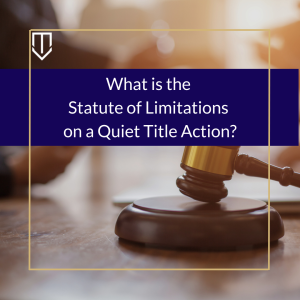 The Legislature has not established a specific statute of limitations for actions to quiet title. (Salazar v. Thomas (2015) 236 Cal.App.4th 467, 476.) Instead, the statute of limitations is based on the underlying theory of relief for the action. (Id.) For example, if the underlying theory is relief for trespass or injury to real property, then the applicable statute of limitations would be three years. (Code of Civil Procedure § 338.)
The Legislature has not established a specific statute of limitations for actions to quiet title. (Salazar v. Thomas (2015) 236 Cal.App.4th 467, 476.) Instead, the statute of limitations is based on the underlying theory of relief for the action. (Id.) For example, if the underlying theory is relief for trespass or injury to real property, then the applicable statute of limitations would be three years. (Code of Civil Procedure § 338.)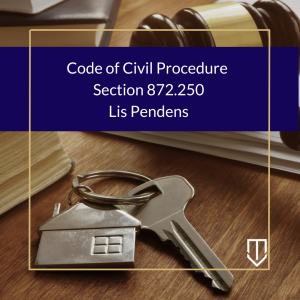 The California Partition Law begins at Code of Civil Procedure section 872.010 and ends at Code of Civil Procedure section 874.323. Section 872.250 outlines the procedure for a plaintiff seeking a partition of real property to record a lis pendens with the county office.
The California Partition Law begins at Code of Civil Procedure section 872.010 and ends at Code of Civil Procedure section 874.323. Section 872.250 outlines the procedure for a plaintiff seeking a partition of real property to record a lis pendens with the county office. 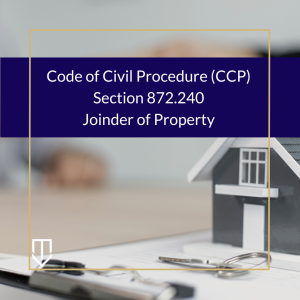 The California Partition Law begins at
The California Partition Law begins at 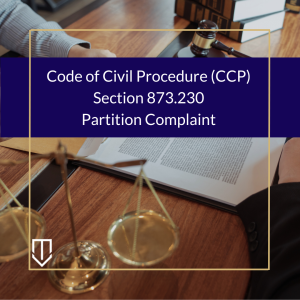 The California Partition Law begins at Code of Civil Procedure section 872.010 and ends at Code of Civil Procedure section 874.323. Section 872.230 outlines the necessary information a plaintiff must have in their complaint. The point of the statute is for plaintiffs to file a proper complaint with all of the content required to initiate a partition lawsuit. If the party files an improper complaint, the court could dismiss the case at the outset.
The California Partition Law begins at Code of Civil Procedure section 872.010 and ends at Code of Civil Procedure section 874.323. Section 872.230 outlines the necessary information a plaintiff must have in their complaint. The point of the statute is for plaintiffs to file a proper complaint with all of the content required to initiate a partition lawsuit. If the party files an improper complaint, the court could dismiss the case at the outset.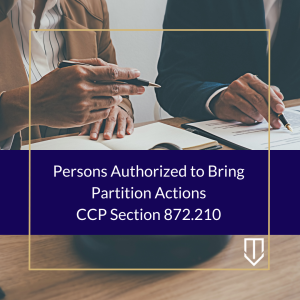
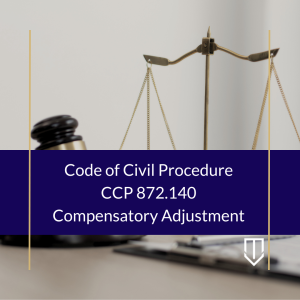 The
The 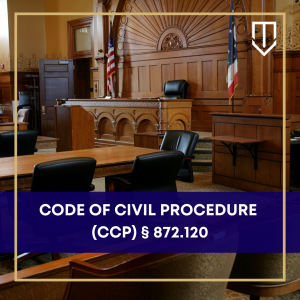 California Code of Civil Procedure section 872.120 grants the court continuing jurisdiction to hear all motions and issue any necessary decrees in order to fulfill the purpose of the partition title, which aims to provide the court with broad statutory authority.
California Code of Civil Procedure section 872.120 grants the court continuing jurisdiction to hear all motions and issue any necessary decrees in order to fulfill the purpose of the partition title, which aims to provide the court with broad statutory authority.